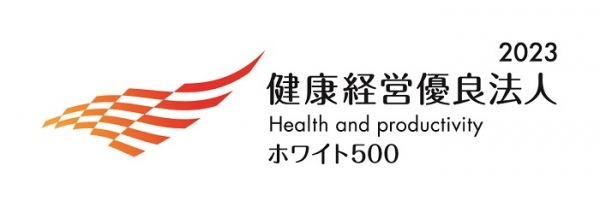accelerated approval is based on phase 2 data showing a reduction in amyloid-beta plaques in early ad patients treated with leqembi™
treatment with leqembi should be initiated in patients with mild cognitive impairment or mild dementia stage of disease, the population in which treatment was initiated in clinical trials
tokyo and cambridge, mass., january 7, 2023 – eisai co., ltd. (headquarters: tokyo, ceo: haruo naito, “eisai”) and biogen inc. (nasdaq: biib, corporate headquarters: cambridge, massachusetts, ceo: christopher a. viehbacher, “biogen”) announced today that under the accelerated approval pathway the u.s. food and drug administration (fda) has approved lecanemab–irmb (brand name in the u.s.: leqembi™) 100 mg/ml injection for intravenous use, a humanized immunoglobulin gamma 1 (igg1) monoclonal antibody directed against aggregated soluble (“protofibril”)* and insoluble forms of amyloid beta (aβ) for the treatment of alzheimer’s disease (ad). the approval is based on phase 2 data that demonstrated that leqembi reduced the accumulation of aβ plaque in the brain, a defining feature of ad. using the recently published data from the large global confirmatory phase 3 clinical trial, clarity ad, eisai will work quickly to file a supplemental biologics license application (sbla) to the fda for approval under the traditional pathway.
indication
leqembi is indicated for the treatment of alzheimer’s disease. treatment with leqembi should be initiated in patients with mild cognitive impairment or mild dementia stage of disease, the population in which treatment was initiated in clinical trials. there are no safety or effectiveness data on initiating treatment at earlier or later stages of the disease than were studied. this indication is approved under accelerated approval based on reduction in amyloid beta plaques observed in patients treated with leqembi. continued approval for this indication may be contingent upon verification of clinical benefit in a confirmatory trial.
dosage and administration (patient selection, dosing instructions, monitoring and dosing interruption for aria)
the recommended dosage of leqembi is 10 mg/kg administered intravenously once every two weeks to eligible patients with confirmed presence of aβ pathology prior to initiating treatment. enhanced clinical vigilance for amyloid–related imaging abnormalities (aria) is recommended during the first 14 weeks of treatment with leqembi. baseline, recent (within one year) brain mri prior to initiating treatment with leqembi and periodic monitoring with mri prior to the 5th, 7th, and 14th infusions should be obtained.
adverse reactions
the safety of leqembi has been evaluated in 763 patients who received at least one dose of leqembi in study 201. the most common adverse reactions reported in at least 5% of patients treated with leqembi 10 mg/kg biweekly (n=161) and at least 2% higher incidence than patients on placebo (n=245) were infusion–related reactions (leqembi 20%; placebo 3%), headache (leqembi 14%; placebo 10%), ariae (leqembi 10%; placebo 1%), cough (leqembi, 9%; placebo, 5%) and diarrhea (leqembi, 8%; placebo, 5%). the most common adverse reaction leading to discontinuation of leqembi was infusionrelated reactions that led to discontinuation in 2% (4/161) of patients treated with leqembi compared to 1% (2/245) of patients on placebo.
“the fda’s approval of leqembi under the accelerated approval pathway is an important milestone in eisai’s four decades of research in alzheimer’s disease and reflects our continued commitment to alleviating the burden of alzheimer’s disease for patients and their families. eisai has made great efforts to understand the reality of the challenges and concerns facing patients and their families who are living in the various stages of alzheimer’s disease, and we are incredibly pleased to offer leqembi as a new treatment option to help with the tremendous unmet needs of this community,” said haruo naito, chief executive officer at eisai co., ltd. “the challenges of alzheimer’s disease reach beyond medical implications for patients and considerations for their families, but also impact society as a whole through reduced productivity, elevated social costs and anxiety. upon receiving this accelerated approval, we will focus on providing important information on proper usage of leqembi to healthcare professionals. eisai will also engage with various payers to provide access to leqembi, offer a patient support program, and
will do its utmost to complete submission for traditional approval as soon as possible to serve more people living with early alzheimer’s disease.”
“the approval of leqembi provides new hope to patients with alzheimer’s disease. patients at an early stage of the disease and their caregivers can now consider a new treatment option with their doctors. our focus now is on the path forward, working alongside eisai with the goal of making leqembi available to patients who may benefit from this treatment as soon as possible,” said christopher a. viehbacher, president and chief executive officer of biogen. “this approval is also a recognition of the many scientists and doctors who have, over many years, patiently and persistently worked to find a treatment for this highly complex disease. eisai and biogen have collaborated for nearly a decade to advance research to improve the lives of those suffering from alzheimer’s, and we know that this commitment must and will continue in the fight against alzheimer’s disease.”
media contacts:
eisai co., ltd.
public relations department
tel: 81 (0)3–3817–5120
eisai inc. (u.s.)
libby holman
1–201–753–1945
libby_holman@eisai.com
eisai europe, ltd.
(uk, europe, australia, new zealand and russia)
emea communications department
44 (0) 786 601 1272
emea-comms@eisai.net
biogen inc.
natacha gassenbach
1–857–777–6573
public.affairs@biogen.com
investor contacts:
eisai co., ltd.
investor relations department
tel: 81 (0) 3–3817–5122
biogen inc.
mike hencke
1–781–464–2442
ir@biogen.com

